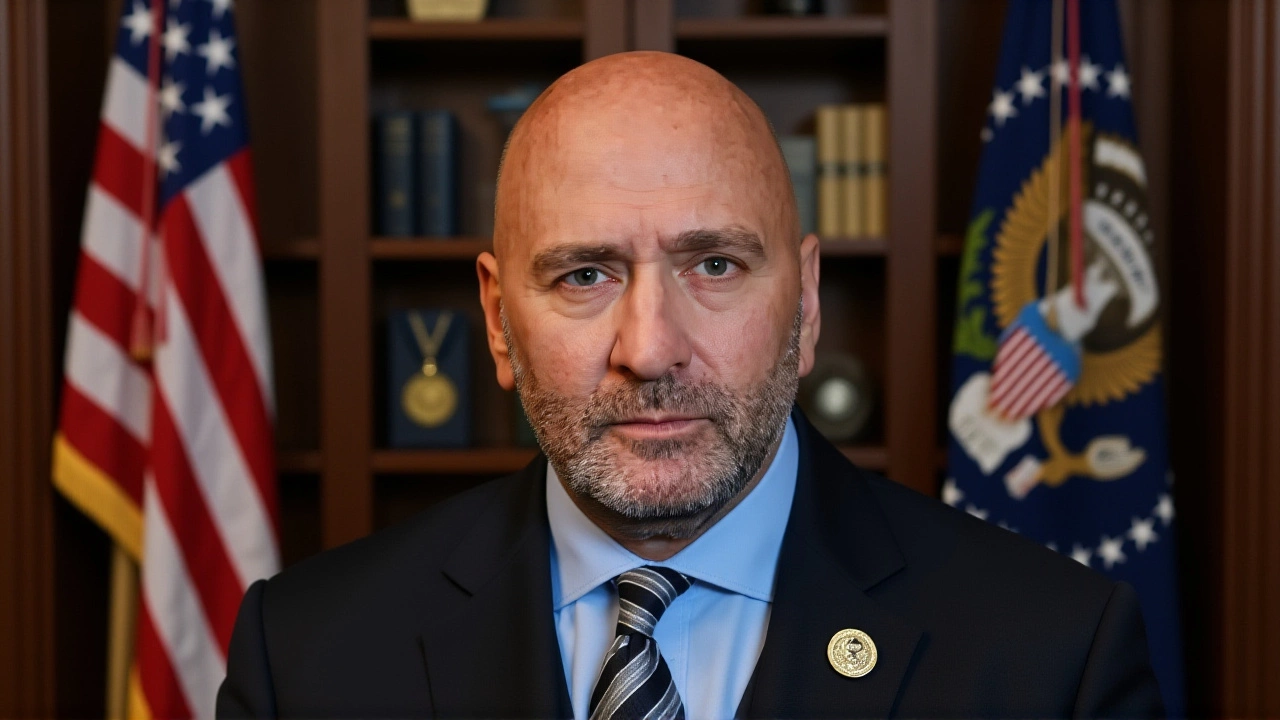The Epstein Files Transparency Act didn’t just pass — it obliterated resistance. On November 19, 2025, the U.S. House of Representatives voted 427-1 to force the release of every document tied to Jeffrey Epstein’s crimes, his mysterious death, and the network that shielded him. Only one voice objected: Representative Clay Higgins, the 53-year-old Republican from Louisiana’s 3rd congressional district. The bill, H.R.4405, now heads to the Senate, which had already approved it by unanimous consent the day before. The Justice Department will release roughly 15,000 pages of records within 30 days of signing — including flight logs from Epstein’s infamous "Lolita Express" and secret emails from his 2008 plea deal negotiations. This isn’t just paperwork. It’s closure for survivors. And it’s a reckoning for power.
Why This Bill Finally Broke Through
For years, the Epstein files were treated like state secrets. Even after his August 10, 2019, death in the Metropolitan Correctional Center in New York City, officials stalled. The public demanded answers. Survivors, many of whom had spent over a decade fighting in silence, organized. Groups like the Epstein Victims' Compensation Program and the National Center for Missing & Exploited Children pushed relentlessly. Then came the discharge petition — a rarely used procedural tool that forces a bill to the floor if 218 members sign on. It happened. And fast. The House Judiciary Committee, chaired by Jim Jordan of Ohio, moved the bill in record time. No hearings. No delays. Just momentum.Former President Donald Trump, who once blocked transparency on Epstein, flipped. On November 17, 2025, his spokesperson announced he’d sign the bill if it reached him. "He can’t go against us anymore," said one survivor. "We’re still afraid those files were in his hands too long." The shift wasn’t just political. It was moral. And it came from the ground up.
The One Vote That Broke the Mold
Clay Higgins didn’t vote against transparency. He voted against the lack of safeguards. "This bill doesn’t just open files — it dumps them," he said on the House floor. "We’re exposing victims, therapists, even bystanders who were never accused of anything. This isn’t accountability. It’s exposure without due process." His amendments — requiring redactions for non-suspects, anonymizing third-party communications, and delaying release until privacy reviews were complete — were rejected by the Senate on November 18. No one spoke in favor. Not one senator.It’s unusual. In modern congressional history, no transparency bill has passed with a 427-1 margin. Even after 9/11, the Patriot Act had 357 yeas. This was different. It wasn’t partisan. It wasn’t political theater. It was grief, rage, and justice, all rolled into one vote. And Higgins stood alone.

What’s in the Files — and Why It Matters
The documents expected to be released include:- Flight logs from Epstein’s private jet, the "Lolita Express," showing who flew with him between Palm Beach, New York, the U.S. Virgin Islands, and his private island in the Caribbean.
- Internal emails between Epstein’s lawyers and prosecutors in Florida’s Southern District Court during the 2008 non-prosecution agreement that let him serve only 13 months.
- Communications between federal agents and the FBI regarding his 2019 arrest and death, including notes from the guards on duty.
- Names of associates, donors, and public figures mentioned in witness statements — some redacted, many not.
Attorney General Merrick Garland confirmed the Justice Department will comply fully. "The public has waited too long," he said in a statement. "These documents belong to the victims, not the powerful." The release could implicate dozens of people still active in politics, finance, and media. It could also clear others — which matters just as much.
The Aftermath: Justice, Not Just Disclosure
This isn’t the end. It’s the beginning. Once the documents are out, civil lawsuits will surge. State attorneys general will reopen cold cases. Journalists will dig. Survivors will finally be heard — not in courtrooms, but in headlines. The Epstein Files Transparency Act doesn’t punish anyone. But it makes it impossible to hide.And that’s the point.

What’s Next?
President Trump is expected to sign the bill by November 25, 2025, based on White House sources. The Justice Department’s document release is scheduled for December 20, 2025. Meanwhile, Senator Ro Khanna — the bill’s sponsor — has already hinted at follow-up legislation to reform how federal prisons handle high-profile inmates. "No one should die in custody without a full, public accounting," he said.As for Higgins? He’s facing pressure from constituents. A local survivor advocacy group in Lafayette, Louisiana, has begun collecting signatures for a recall petition. "He says he’s protecting privacy," said 32-year-old survivor Maria Lopez, who testified before Congress in 2023. "But we’ve been protecting privacy for 15 years. Who protected us?"
Frequently Asked Questions
Why did only Clay Higgins vote against the bill?
Clay Higgins argued the bill lacked sufficient privacy protections for victims, family members, and uninvolved third parties mentioned in documents. He proposed amendments to redact names and delay releases for review, but the Senate rejected them unanimously. His vote wasn’t about protecting Epstein — it was about opposing what he called an "unfiltered dump" of investigative files. Critics say his concerns were valid but came too late, after years of obstruction.
What documents will be released, and when?
The Justice Department will release approximately 15,000 pages by December 20, 2025. This includes flight logs from Epstein’s "Lolita Express," internal communications between his legal team and prosecutors during his 2008 plea deal, FBI reports on his 2019 death, and witness statements. Some names will be redacted if deemed necessary for ongoing investigations, but the bulk will be public. This is the most comprehensive release of Epstein-related materials ever ordered by Congress.
How did Donald Trump change his position on the Epstein files?
Trump initially blocked efforts to release the files during his presidency, calling them "political weapons." But after a bipartisan petition signed by 218 House members forced H.R.4405 to the floor, and after intense pressure from Epstein survivors and media scrutiny, he reversed course. His spokesperson confirmed on November 17, 2025, that he would sign the bill. The shift reflects growing public outrage — and the realization that opposing transparency was politically unsustainable.
What impact will this have on other high-profile cases?
This bill sets a precedent for transparency in cases involving powerful figures. Legal experts say it could pressure Congress to pass similar laws for other high-profile deaths in custody — like Jeffrey Epstein’s associate Ghislaine Maxwell, or even the 2020 death of George Floyd. The message is clear: secrecy is no longer acceptable when public safety and justice are at stake. Survivors’ advocates are already drafting follow-up legislation for other cases.
Who is Ro Khanna, and why is he central to this bill?
Representative Ro Khanna, a Democratic congressman from California’s 17th district since 2017, introduced the Epstein Files Transparency Act on July 15, 2025. A former Silicon Valley tech executive and vocal advocate for government accountability, he framed the bill as a moral imperative. He worked closely with survivor groups to draft the language and pushed for the discharge petition that bypassed committee delays. His leadership turned a long-stalled issue into a historic legislative victory.
Is this the end of the Epstein story?
No. This is the opening chapter. The documents will likely reveal new names, new connections, and possibly new crimes. Some survivors say they expect indictments to follow. Others worry about misinformation spreading as people interpret raw files without context. The Justice Department plans to release a summary guide alongside the documents. But for many, the real work begins now: holding institutions accountable, not just individuals.

